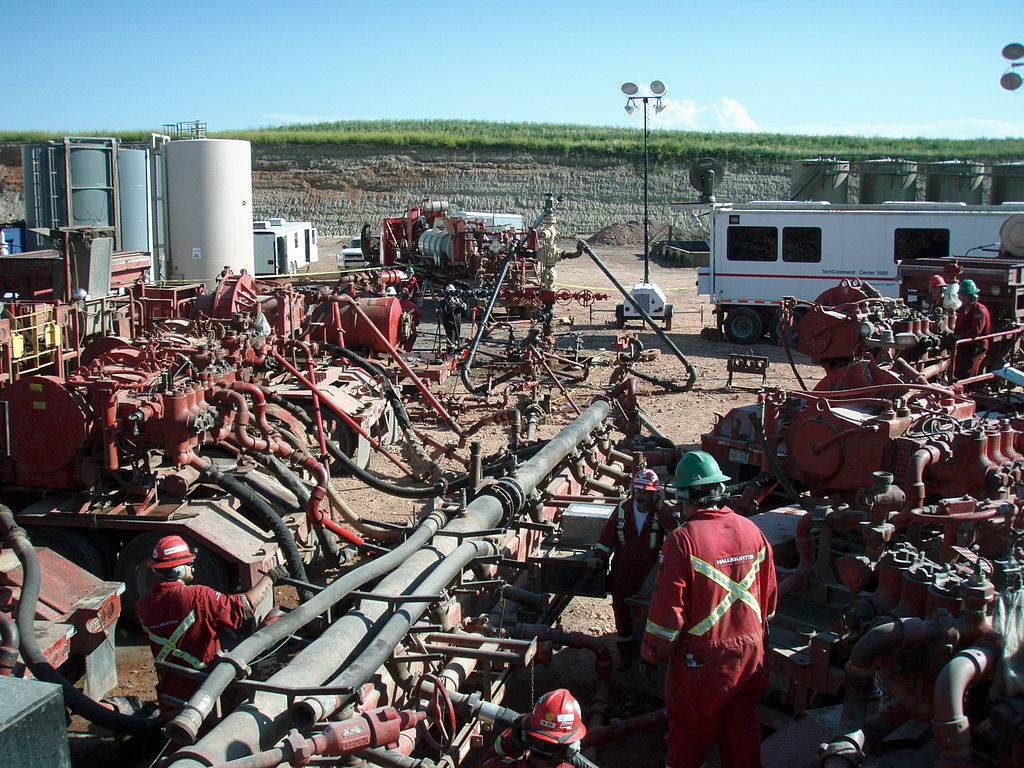In 2017, the Bundestag and Bundesrat passed what is probably the world’s strictest law on fracking for natural gas. It regulates the complete ban on commercial fracking, with the aim of protecting the environment and health from the risks of this technology. Germany is sitting on about 2.3 trillion cubic metres of natural gas in shale rock that could be extracted with this technology.
With the curtailment of Russian gas supplies, an enormous supply bottleneck looms
With the curtailment of Russian gas supplies via Nord Stream 1, Germany is currently facing a dangerous energy crisis. The supply bottleneck is causing prices for industry and private households to rise to ever new record levels. Despite massive cutbacks, Germany is still dependent on Russian gas. A good half of its natural gas needs should be covered by supplies from Russia. The curtailment now threatens an acute state of emergency. The declaration of the second stage of the emergency plan for gas supply is imminent.

Image: Joshua Doubek, CC BY-SA 3.0, via Wikimedia Commons
Voices against a ban on fracking are growing louder
Now the voices to reconsider the fracking ban are getting louder. Markus Söder, NRW Economics Minister Andreas Pinkwart and Michael Hüther, head of the Institute of the German Economy, are all calling for a review of the ban in light of the current energy crisis.
The parliamentary director of the FDP, Torsten Herbst argued in an interview. “As scientific studies show, fracking does not cause any relevant environmental damage under modern safety standards. The government should therefore seriously examine whether major shale gas extraction is feasible in Germany from an economic and technical point of view.”
Habeck rejects fracking in his own country, but relies on fracking gas from abroad
However, Federal Minister of Economics Robert Habeck continues to vehemently oppose the use of fracking. According to Habeck, fracking has negative consequences for the environment and there are also many legal hurdles. This is a rather flimsy justification, because Habeck is massively pushing the import of liquefied gas from the USA. This gas is almost exclusively extracted by fracking. Environmental damage in the USA is thus probably not a problem for the Greens. The legal problems are similar. The Green ministries for environmental protection and the ministry of economics are responsible for the relevant laws. The problems could be solved if only they wanted to.
Germany could cover one fifth of its gas demand through fracking
The 2.3 trillion cubic metres of gas deposits in German shale rock would be enough to supply Germany with natural gas for several decades, according to Hans-Joachim Kümpel, former president of the Federal Institute for Geosciences and Natural Resources. Kümpel calls the ban on fracking a fool’s errand. “A production volume of 20 billion cubic metres per year is possible, for decades to come.” Through extraction, Germany could replace a good half of the required Russian supply volume. “It would significantly reduce the glaring dependence on imports,” Kümpel said.
Technology could be deployable faster than LNG terminals are built
According to Mohammed Amro of the Freiberg Mining Academy, significant quantities of domestic gas could be produced as early as within a year. However, the government would first have to create the legal framework and lift the ban. Within five years, an increase in production would be sufficient to cover one-fifth of Germany’s gas needs. This means that domestic production could be implemented faster than the construction of the necessary LNG terminals.
The double morality of the Greens
By advocating the ban on fracking, the Greens are showing their double standards, as they did with the nuclear phase-out. Instead of keeping nuclear power plants running, lignite-fired power plants with high CO₂ emissions are to be put back on the grid. In addition, large quantities of nuclear power are being imported from our neighbouring countries. This is exactly what is happening now with fracking. The technology is banned in our own country, while large quantities of fracking gas are imported from abroad. This has nothing to do with environmental protection. It is pure ideology and also a lack of courage to admit to oneself that one has made a mistake.
